14 female health myths women need to stop believing
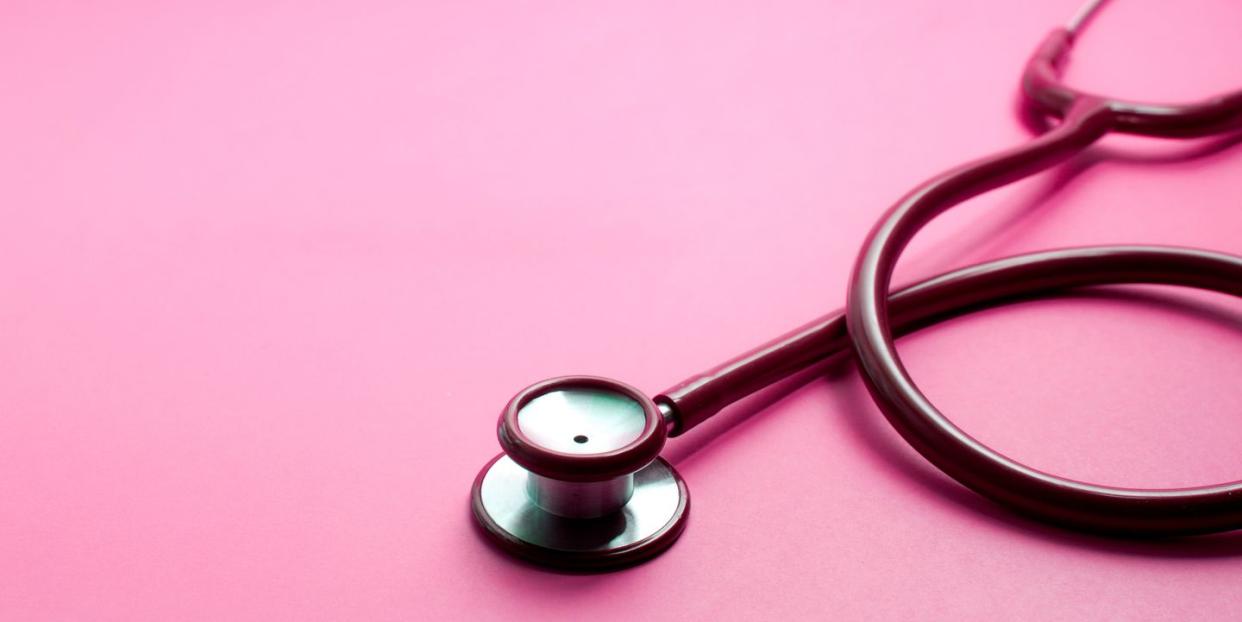
As young women, health isn't always at the top of our agenda, because we just don't really believe we'll get ill.
But failing to inform ourselves correctly about health issues that might affect us can be problematic, because with so much false information out there online, we can end up believing myths that just aren't true about our health.
Myths like these...
1.You need a health professional to check your breasts properly
"Not at all," says Dr Petra Simic, Medical Director at Bupa Health Clinics. "While we would recommend women to have a regular health check for female health conditions, women can and should check their own breasts. It’s important for women to get to know how their breasts look and feel normally. Checking regularly will mean any unusual changes can be quickly addressed."
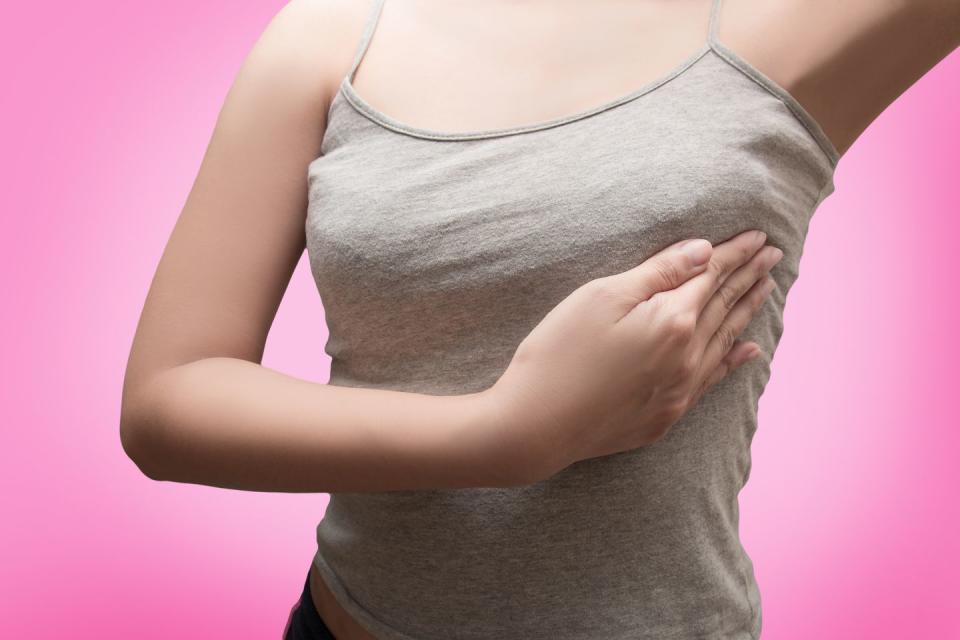
2. Missing your period means you’re pregnant
"There could be a number of reasons why someone misses their period, outside of potentially being pregnant," explains Dr Petra. Laying out some of these possible reasons, the doctor said: "Increases in your exercise regime and a significant change in weight could be causes to consider. Stress is a common cause of skipping or delaying a period as well. If it’s unlikely these are the reasons then it could be other medical conditions such as premature menopause or polycystic ovary syndrome.
"If you have any on-going concerns it’s important to get medical advice. However, if you are not using contraception reliably you should always rule out pregnancy with an over the counter pregnancy test," noted Dr Petra. You can read more on reasons for a missed period (that are completely unrelated to pregnancy) here.
3. Hurting or bruising your breast can cause breast cancer
"When we hurt or bruise our breasts we may find ourselves looking at them more, feeling them and generally taking more notice of them which could lead to us finding something unusual and getting them checked. There is no evidence to suggest that a bump or bruise to the breast area increases your risk or causes breast cancer," reassured the doctor.
4. Bacterial Vaginosis only affects women who are sexually active
Again, not true. "Women who are sexually active have a higher risk of developing Bacterial Vaginosis (BV)," explained Dr Petra, who added: "But anyone can get it. The most common cause of BV is 'over cleaning' the vulval and vaginal region. BV is triggered by anything that upsets the vaginal pH. Using bubble bath, perfumed soaps, using vaginal deodorant and douching (cleansing inside the vagina with water) are common causes.
"To prevent BV recurring it is important is to reduce the amount and aggressiveness of your cleansing regime. The vagina is a self-cleaning part of the body, and should be left alone with regards to daily washing," said the doctor. "However, if despite changing your cleansing routine, you find you are frequently getting BV it’s best to visit your GP, as there may be additional treatments which could help," she added.
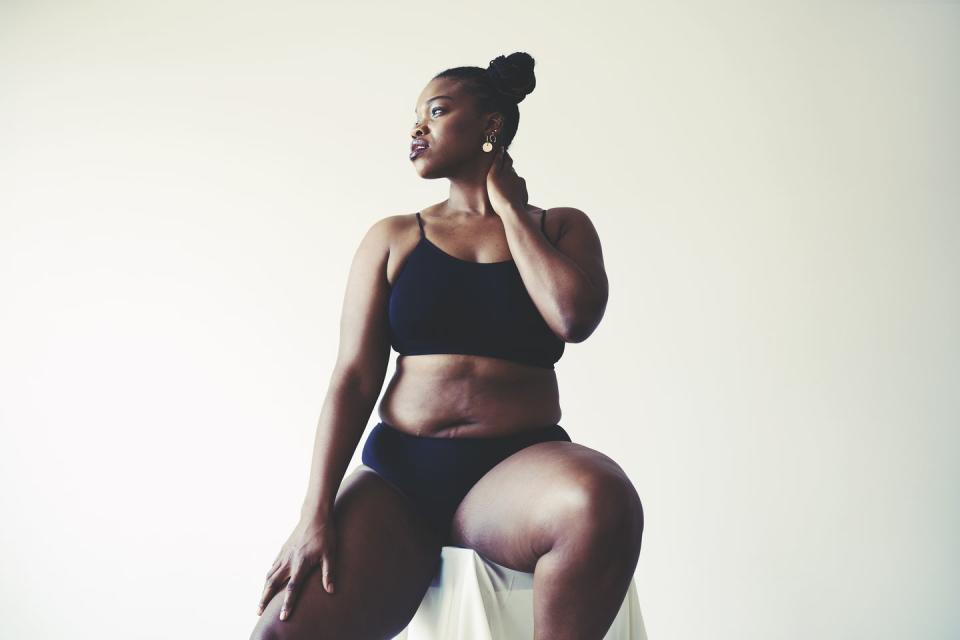
5. Being on the pill for too long can cause fertility problems
"This is a common misconception," reassured Dr Petra. "It is possible to conceive whilst taking the pill if you frequently miss pills, and this is because there is no long-term, or underlying effect on fertility from taking the pill.
"However, being on the pill means that your natural cycle is 'hidden' by the regular bleeds caused by the pill free days. It means that women who would have had irregular periods naturally, and therefore less frequent ovulation and therefore less chance of conception, are not aware of it until they stop their pill," explained the expert. "The more common occurrence is that women fall pregnant immediately after stopping the pill, sooner than they had wanted, as they had falsely assumed it may take longer for them to conceive. The minute you stop the pill you should assume you are fertile. If you have not conceived after a year of not taking contraception make an appointment to discuss your situation with your GP."
6. HPV isn’t transmitted through sexual activity
Wrong again. "Human papillomavirus (HPV) is a group of viruses commonly spread during intercourse," clarified the doctor. "While people tend not to know too much about this virus, it is very common and almost all cervical cancer cases occur in women who have been exposed to HPV." Find out how cervical smear tests are changing to incorporate more focus on HPV here.
7. An abnormal smear test indicates a high risk of cancer
"A smear test, or a cervical screening test as it is also known, checks the health of the cervix – it is not just a test for cancer," said Dr Petra. "Of course, if there were any abnormalities – which happens to 1 in 20 women - then further testing would be carried out. The most common reason for abnormalities is changes to the cells caused by HPV. It doesn’t necessarily mean cancer," advised the doctor. It's useful to know, however, that cervical smear tests are changing in the near future, so you can find out all about how it'll affect you here.
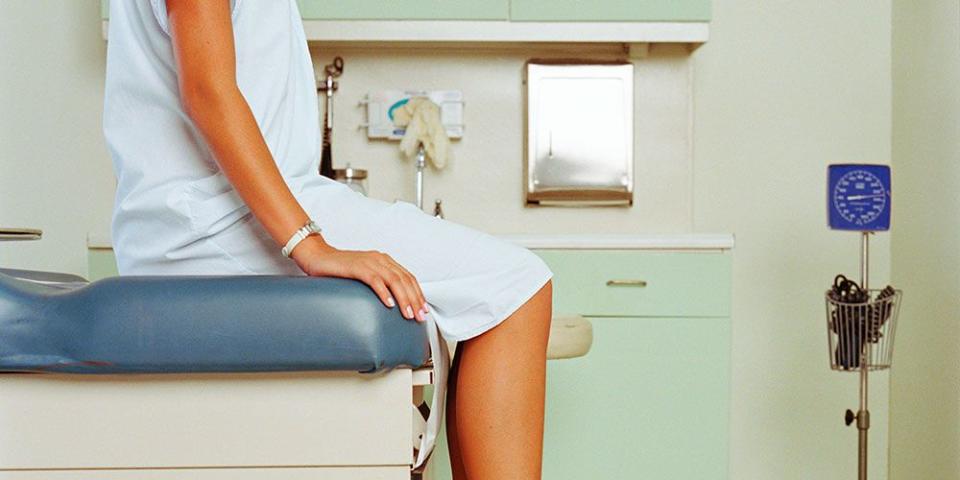
8. Cranberry juice cures urine infections
Well sit down and listen to this one, because everything you ever thought you knew about UTIs is basically untrue. "We’ve all heard this, but actually there is no evidence to suggest it is true," said Dr Petra, dropping one helluva bombshell. "Guidance published by NICE (National Institute for Health and Care Excellence) revealed that there is very little evidence to suggest otherwise," she added. Looks like we'll be using plain old water instead to flush UTIs out of our systems in future, then.
9. You should only have a smear test if you’re sexually active
In the UK, women start having smear tests from the age of 25. Elsewhere in the world, however, in places such as America, women have smear tests as soon as they become sexually active. So should you only be having a cervical screening if you're sexually active? "Absolutely not and it’s important that women know that," says Dr Petra. "In the UK, all women aged between 25 and 64 are recommended for cervical screening every three years."
10. Having HPV means you have early signs of cervical cancer
A lot about HPV is misunderstood, which is partly why the new cervical screening tests will have a primary focus on HPV diagnosis. But having HPV is nothing to be scared of. As Dr Petra points out, "while almost all cases of cervical cancer are caused by HPV, it’s important to understand that having the virus doesn’t always mean you have early signs of the cancer. There are more than 100 types of HPV and many of them are harmless. The most important thing is to have regular cervical screening tests so any abnormalities – harmful or not – can be detected."
11. You can’t get pregnant while on your period
"The likelihood of you getting pregnant while on your period is significantly less than the chances of conceiving during ovulation, but it isn’t impossible as sperm can live inside the body for up to five days so it can remain active as you enter the fertile stage," advised the doctor.
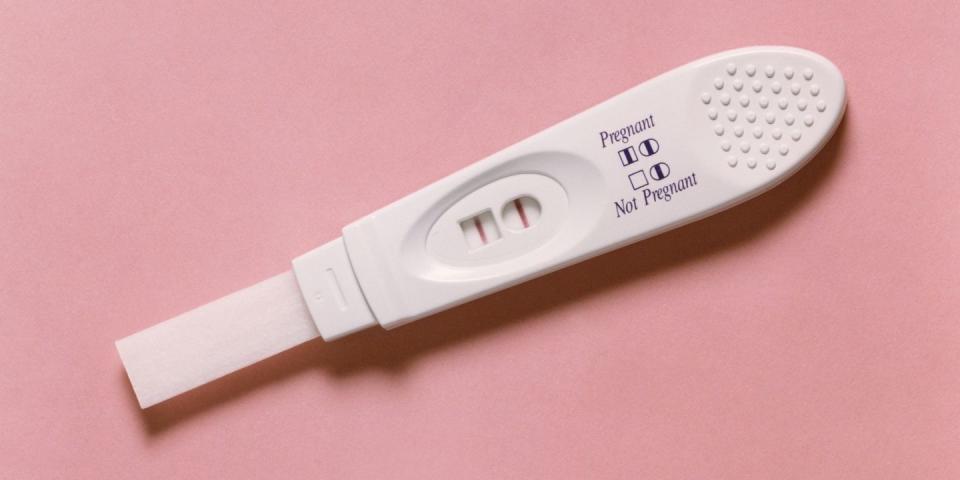
12. Only women over 50 will experience the menopause
"While the average age for a woman to reach the menopause is 51, around 1 in 100 women experience premature menopause before the age of 40 and will experience menopausal symptoms," said Dr Petra. Read more about perimenopause - the initial stage of menopause that can affect younger women, here.
13. Having a urine infection means you've got poor hygiene
"Absolutely not and women should never think this," reassures the expert. "A urine infection can be caused by a number of things including pregnancy, a kidney problem, constipation (more so in children) and having a weak immune system. It is possible to have a urine infection with no underlying problem too, however if happening repeatedly further tests may be needed to look for an underlying cause."
14. Women with large breasts are more at risk of breast cancer than those with smaller breasts
"Breast size has nothing to do with it. Family history, smoking, drinking more alcohol than the recommended guidelines, being overweight and not being active are all factors that appear to correlate to increased frequency of breast cancer," said Dr Petra. But that doesn't stop women believing this myth, and Cosmopolitan UK spoke to one woman who only found out it wasn't true after her own diagnosis of breast cancer. You can read about that here.
The doctor did add, however, that "having large breasts may make finding lumps harder, so being familiar with what is normal for you is important."
Dr Petra is keen to encourage women with any worries to act on them, and go to see a doctor.
"Whether they feel embarrassed, scared or think they don’t have the time – it’s important that women don’t avoid medical appointments if they have concerns," she said.
To help women separate fact from fiction, Bupa Health Clinics will host a Female Health Facebook Live Q&A event on 19 October 2018. Bupa GP Dr Samantha Wild will be answering questions specifically about female health. For more information and to submit your question for the Facebook Q&A, visit the Bupa Health Clinics Facebook page.
Follow Cat on Instagram.
('You Might Also Like',)


